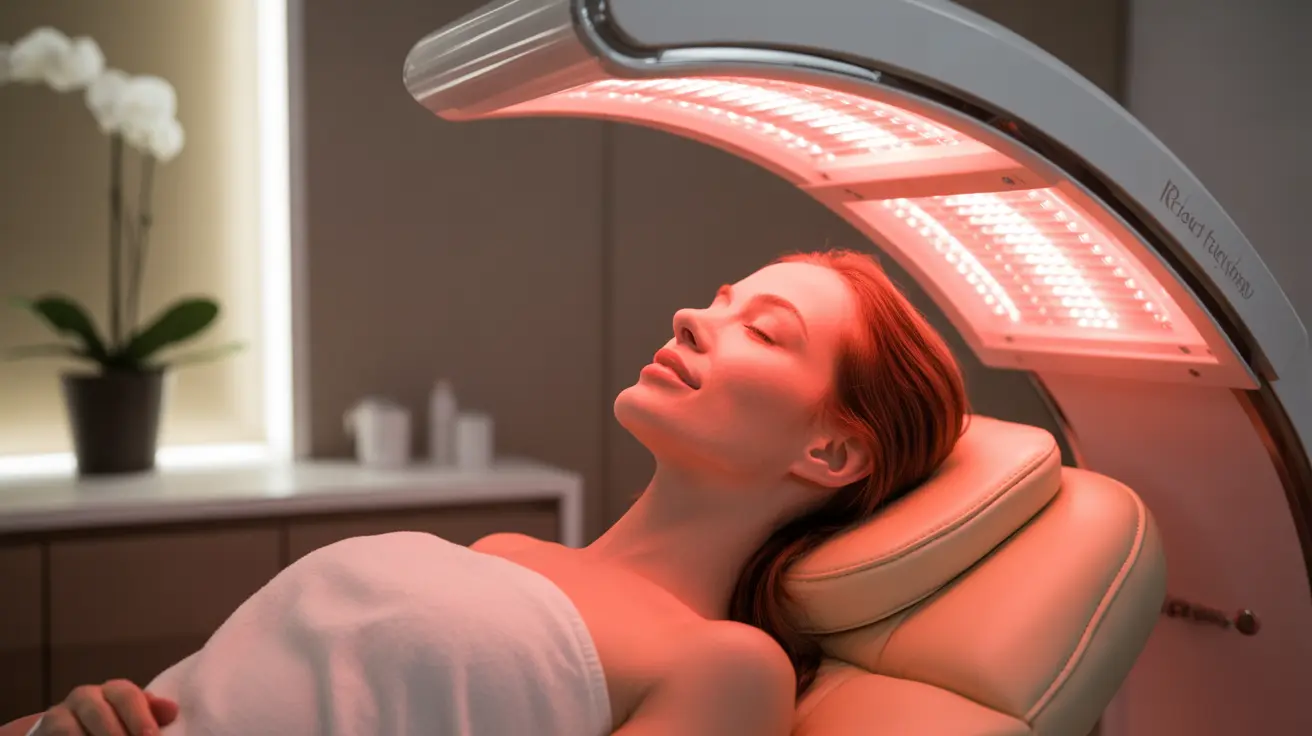Red light therapy, also known as photobiomodulation or low-level light therapy, has gained significant attention in the medical and wellness communities for its potential therapeutic benefits. This non-invasive treatment uses specific wavelengths of red and near-infrared light to penetrate the skin and potentially stimulate healing, reduce inflammation, and improve various health conditions.
As research continues to expand our understanding of this innovative treatment method, more healthcare providers and wellness practitioners are incorporating red light therapy into their treatment protocols. Let's explore the science behind this therapy, its various applications, and what you should know before trying it.
How Red Light Therapy Works
Red light therapy operates on the principle of cellular stimulation. When specific wavelengths of red and near-infrared light (typically between 630-850 nanometers) penetrate the skin, they interact with mitochondria – the powerhouses of our cells. This interaction may boost ATP production, enhance cellular energy, and trigger various beneficial biological processes.
The therapy's effectiveness stems from its ability to reach deeper tissue layers without causing damage to the skin's surface, making it a safe option for most people when used correctly.
Clinical Applications and Benefits
Skin Health and Anti-Aging
Red light therapy has shown promising results in improving skin health. The treatment may help:
- Boost collagen production
- Reduce fine lines and wrinkles
- Improve skin texture and tone
- Accelerate wound healing
- Minimize scarring
Pain Management and Inflammation
Many individuals experiencing chronic pain have found relief through red light therapy. The treatment can potentially:
- Decrease inflammation in joints and muscles
- Reduce arthritis symptoms
- Alleviate muscle soreness
- Improve circulation in treated areas
- Speed up recovery after injury
Hair Growth and Scalp Health
Research suggests that red light therapy may stimulate hair follicles and potentially improve hair growth, particularly in cases of androgenetic alopecia. The treatment works by:
- Energizing dormant hair follicles
- Improving blood flow to the scalp
- Supporting cellular regeneration in the scalp region
Treatment Protocols and Best Practices
Successful red light therapy treatment typically requires:
- Consistent treatment sessions (usually 3-5 times per week)
- Appropriate duration (10-20 minutes per session)
- Proper distance from the light source
- Clean, uncovered skin in the treatment area
- Regular maintenance sessions for ongoing benefits
Safety Considerations and Potential Side Effects
While red light therapy is generally considered safe, users should be aware of potential risks:
- Temporary eye strain if proper eye protection isn't used
- Mild skin sensitivity in some individuals
- Possible headaches during initial treatments
- Risk of burns if devices are used incorrectly
Frequently Asked Questions
What are the benefits and potential risks of using red light therapy for skin conditions?
Red light therapy can improve skin conditions by stimulating collagen production, reducing inflammation, and promoting healing. While generally safe, potential risks include temporary skin sensitivity and possible burns if used incorrectly. Always follow device instructions and start with shorter sessions to assess your skin's response.
How does red light therapy work to reduce pain and inflammation, and is it a viable treatment option for chronic pain?
Red light therapy reduces pain and inflammation by penetrating deep into tissues, stimulating cellular repair, and improving blood circulation. Research indicates it can be an effective complementary treatment for chronic pain conditions, particularly when used consistently as part of a comprehensive pain management plan.
What are the common side effects of red light therapy, and how can they be minimized?
Common side effects are typically mild and include temporary eye sensitivity, slight skin warmth, and occasional headaches. These can be minimized by using protective eyewear, following recommended treatment distances and times, and gradually increasing exposure as tolerance builds.
Is red light therapy effective for improving hair growth, and what are the recommended treatment protocols?
Studies suggest red light therapy can stimulate hair growth, particularly in cases of pattern hair loss. Recommended protocols typically involve 10-20 minute sessions, 3-5 times weekly, with consistent long-term use for optimal results. Results vary among individuals, and patience is essential as improvements may take several months.
What are the differences between red light therapy and other types of light therapy, like blue light therapy, in treating skin conditions?
Red light therapy penetrates deeper into the skin and focuses on cellular repair, collagen production, and inflammation reduction. Blue light therapy, in contrast, works more superficially and is primarily used to kill acne-causing bacteria and treat surface skin conditions. Each type of light therapy serves different therapeutic purposes and can sometimes be used complementarily.




